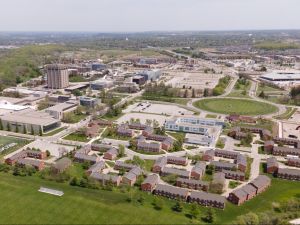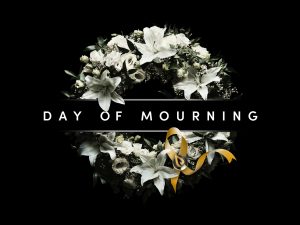 Brock Sports Medicine, in collaboration with the Faculty of Applied Health Sciences and Student Health Services, will begin a pilot project to enhance the University's concussion protocols after receiving financial support from Brock’s new Academic Initiatives Fund.
Brock Sports Medicine, in collaboration with the Faculty of Applied Health Sciences and Student Health Services, will begin a pilot project to enhance the University's concussion protocols after receiving financial support from Brock’s new Academic Initiatives Fund.NOTE: This is one in a series of stories highlighting projects supported by Brock’s Academic Initiatives Fund (AIF), which was established by the University in spring 2021. AIF projects will address key priorities outlined in Brock’s Institutional Strategic Plan and position the University to face the challenges of recovery from the pandemic. To read other stories in the AIF series, click here.
Brock University is enhancing its concussion protocols to better assist students in returning to the classroom after sustaining mild traumatic brain injuries.
Brock Sports Medicine (BSM) has received the green light to add a game-changing concussion intervention thanks to the University’s new Academic Initiatives Fund (AIF).
The venture is one of 18 AIF projects planned for the upcoming 2021-22 academic year. Brock University created the AIF to offer one-year seed funding for new initiatives that will address key priorities outlined in the University’s Institutional Strategic Plan and aid with Brock’s pandemic recovery.
BSM will work with the Faculty of Applied Health Sciences (FAHS) and Student Health Services (SHS) to implement a refined approach to managing concussions among students.
Patients who demonstrate persistent signs and symptoms for more than three weeks are considered to suffer from post-concussion syndrome (PCS).
“PCS can last weeks, months or years without proper detection and treatment. Unfortunately, this often results in negative academic performance and well-being,” said Dan Caterini, BSM’s Registered Physiotherapist. “This opportunity highlights Brock’s acknowledgement of just how serious concussions are. The better equipped we are to assess and treat the injury, the more students will successfully transition back into the classroom after sustaining a concussion.”
BSM’s initiative will create a multi-staged concussion clearance protocol, in collaboration with FAHS and SHS, supported by a guided aerobic exercise program to gradually return patients to pre-concussion functionality.
“The initial treatment of a concussion does not take into account the intensities needed to take part in sport or the mental focus required to learn in a university classroom,” said Steve Lidstone, Associate Director, Sports Performance and Sports Medicine.
The principle of this approach is to increase heart rate and intensity of exercise over time steadily, so the brain and body gradually returns to normal function.
“This pilot project will complement our current concussion assessment and concussion treatment protocols,” Lidstone said.
Patients and their symptoms will be assessed using a Buffalo Concussion Treadmill Test, which measures percentage of heart rate in conjunction with exercise intensity. This approach, which also includes workshops and follow-up tests, aims to gradually return patients to normal function with the ability to tolerate activity at a high level as they return to the proper cognitive levels to maximize their education.
The road map to recovery from a concussion is non-linear, so there’s no cookie-cutter approach, Caterini said.
“Every concussion is different. It’s not uncommon for someone to experience a few good days, followed by a few symptomatic days,” he said. “Our current project will help shed more light on this pathway. In addition, it will give us more objective markers to use as indicators of recovery.”
In conjunction with a guided return strategy, Lidstone expects these concussion protocols will reduce uncertainties and anxieties felt in patients after they’ve sustained a concussion.
“Reducing confusion surrounding brain injuries is another advantage of this project. It will provide clarity through the gradual return to the classroom and physical activity,” Lidstone said. “This protocol will positively affect students’ mental health, academic performance and overall well-being.”
The program, which launches during the upcoming Fall Term, will take in Brock students admitted to SHS with a concussion as well as student-athletes through the Brock Sports Medicine clinic at Harrison Hall.








